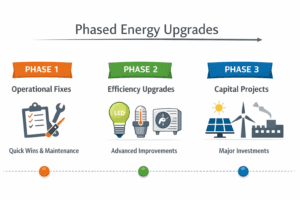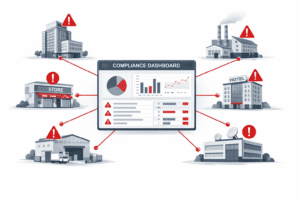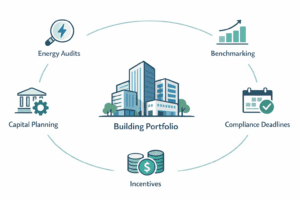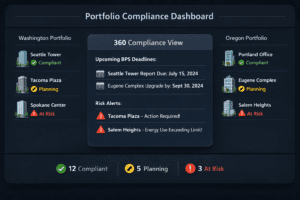I. Introduction
In the dynamic and often complex field of construction, effective communication is the linchpin that ensures projects stay on schedule and within budget. A key component of this communication is the Request for Information (RFI). Despite its importance, a common issue that persists is that RFIs often remain unanswered, leading to significant project delays and cost overruns. This blog explores why RFI in construction often go unanswered and provides strategic insights on how to mitigate these issues, ensuring smoother project execution.
Understanding the swift and precise handling of RFIs is crucial. This is because RFIs serve to clarify plans, specifications, and other project details, ultimately ensuring all stakeholders are aligned and informed. When these inquiries are ignored or addressed too late, the entire project can suffer. Hence, timely response to RFIs is essential in the construction industry.
II. Understanding the Issue
What is an RFI?
A Request for Information (RFI) is a formal query used in construction projects to clarify ambiguities and acquire missing information. RFIs are submitted to architects, engineers, or clients and are essential for acquiring the necessary details that impact various aspects of a project.
Role and Implications
The role of RFIs is multifaceted. They are used to address gaps in information, confirm previous decisions, and ensure that there is no miscommunication or misunderstanding between the involved parties. The implications of not responding to RFIs are severe. Delays are the most immediate consequence, but the ripple effects can lead to budget overflows, compromised structural integrity, and failed inspections. The critical nature of RFIs in maintaining the flow of project execution cannot be overstated.
III. Common Reasons for Unanswered RFIs
Understanding why RFIs go unanswered is the first step towards resolving these issues:
– Miscommunication or Lack of Communication: Often, RFIs are sent to the wrong party or are lost amid other communications. Ensuring that RFIs reach the correct recipient is fundamental.
– Overly Complex or Unclear RFI Queries: If RFIs are not straightforward, recipients might delay responding due to the additional time needed to interpret and gather the required information. Clarity is key in formulating RFIs to avoid back-and-forth communication.
– Overloaded or Inefficient RFI Management Systems: Without efficient systems in place, tracking and managing RFIs can become chaotic. Companies often struggle with RFIs getting lost in a sea of paperwork or digital content. Utilizing dedicated RFI management software can significantly aid in managing this issue effectively.
– Lack of a Dedicated RFI Manager: On larger projects, the volume of RFIs can be overwhelming. Without a designated person or team to handle these requests, important queries can go unnoticed or be significantly delayed, causing project delays.
IV. Exploring the Impact: Consequences of Unresponded RFIs
The consequences of unanswered RFIs extend beyond mere project annoyance; they can have tangible and severe impacts:
– Project Delays and Cost Overruns: Each unanswered RFI can delay related activities, which in turn pushes the project timeline further back, often leading to budget increases. This is particularly true for large-scale projects where dependencies are significant.
– Legal Issues: Unanswered RFIs can lead to non-compliance with project specifications, which can result in legal actions if contractual obligations are not met.
– Negative Effect on Team Morale: Continuous issues with RFIs can lead to frustration among team members, lowering morale and affecting overall productivity. Effective communication and quick resolution of RFIs are essential for maintaining a positive team dynamic.
V. Strategies to Improve RFI Responses

Implementing strategies to improve the management and response rate of RFIs can lead to more efficient project management:
– Clarity and Conciseness: Ensuring that each RFI for construction project is necessary, clear, and concise will encourage quicker and more accurate responses. Training should be provided to everyone involved in the RFI process on how to write effective RFIs.
– Implementing RFI Management Software: Software solutions such as Procore’s RFI management software streamline the process of sending, tracking, and receiving RFIs. This can significantly improve response times and keep projects moving smoothly.
– Dedicated RFI Managers: For larger projects, having a team or at least one individual dedicated to managing RFIs can ensure that each query is accounted for and addressed in a timely manner.
– Enhanced Communication Skills: Developing effective negotiation and communication skills within the team can help in managing RFIs more efficiently. Good communication can avert many issues that arise from misunderstood or poorly constructed RFIs.
VI. Conclusion
Effective RFI management is a cornerstone of successful project management in the construction industry. By understanding the reasons RFIs go unanswered and implementing strategies to combat these issues, construction professionals can enhance their project execution and avoid the common pitfalls associated with poor RFI management. Let this insight transform your approach and lead your projects to timely and cost-effective completions.
VertPro.com is the go-to hub for contractors dedicated to elevating energy performance upgrades for their clients. Our expansive suite of offerings includes expert Commercial Energy Audits, adept Benchmark Compliance consultation, and expansive Construction Marketplace. At VertPro®, we pride ourselves on delivering cutting-edge SaaS technology solutions that simplify the journey through Energy Benchmarking, and Energy Audits/RCx Plus, all while maintaining full compliance with a myriad of more than 60 Energy Benchmarking and Energy Efficiency Regulations nationwide.
At VertPro.com, we don’t just provide the insights and tools for energy management; we also bridge connections between qualified contractors and our client base, eager to upgrade their buildings. This creates a Marketplace where you can expand your project portfolio, ensuring that you’ll have more opportunities to apply your skills and grow your business.
















